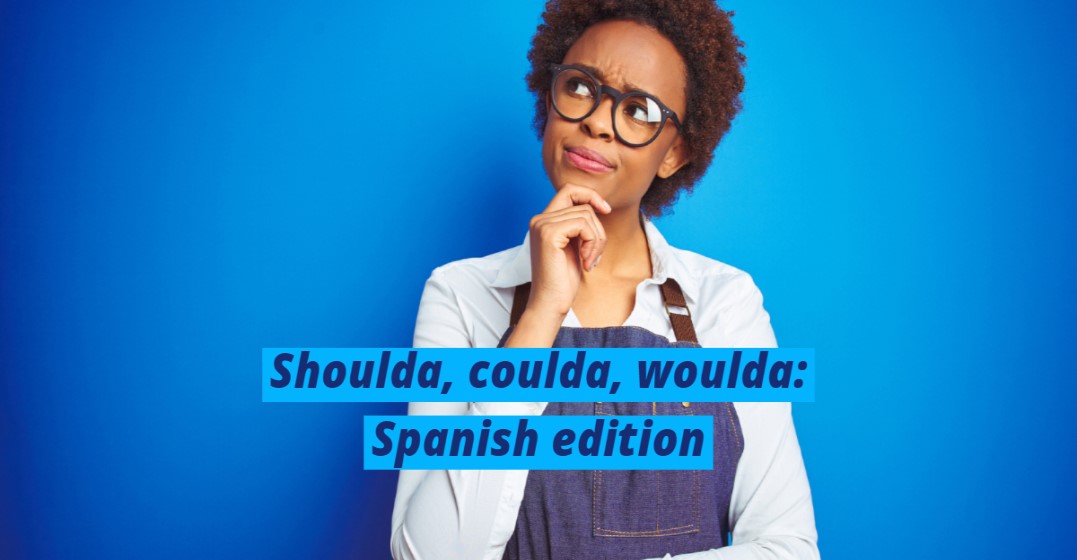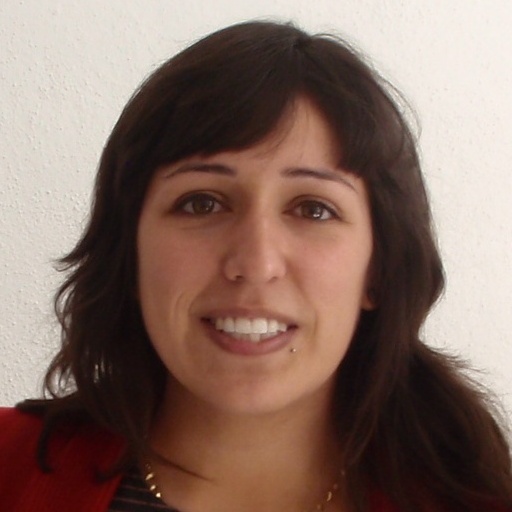The Basics of the Conditional Tense in Spanish

Shoulda, coulda, woulda: Spanish edition
The conditional tense in Spanish is all about the world of “shoulda, coulda, woulda”. The conditional tense is what we use for giving advice, offering suggestions, and talking about potential. These are the main contexts in English for using the conditional tense- I would...
- You should...
- If I were rich and famous, I could...
 Why you should learn the conditional tense in Spanish
As a beginner Spanish speaker, your main goal is to get better. No matter how awkward, being in conversation with native speakers will expand your vocabulary and help you develop a better ear for Spanish grammar.
Though I grew up more or less bilingual, I only truly learned how to chat in Spanish when I studied abroad in Madrid, Spain. That’s because it was the first time I had typical conversations.
In most traditional Spanish classes, we teach the present indicative tense first (I go, you go, he/she/it goes, we go, they go). When is the last time you said those phrases to anyone? It’s just not how we talk.
When we chat, we typically talk using the past tense and the future tense. Most conversations look something like this:
Why you should learn the conditional tense in Spanish
As a beginner Spanish speaker, your main goal is to get better. No matter how awkward, being in conversation with native speakers will expand your vocabulary and help you develop a better ear for Spanish grammar.
Though I grew up more or less bilingual, I only truly learned how to chat in Spanish when I studied abroad in Madrid, Spain. That’s because it was the first time I had typical conversations.
In most traditional Spanish classes, we teach the present indicative tense first (I go, you go, he/she/it goes, we go, they go). When is the last time you said those phrases to anyone? It’s just not how we talk.
When we chat, we typically talk using the past tense and the future tense. Most conversations look something like this:
| PAST |
|
| FUTURE |
|

The simple conditional tense in Spanish: Infinitivo + ía
The simple conditional tense is translated to English as would + verb: I would think, I would eat, I would go, etc. The greatest thing about the conditional tense in Spanish is that it’s super easy to conjugate.- Start with the infinitive form of the verb – pensar, comer, ir
- Add the conditional ending – ía, ías, ía, íamos, ían
- pensaría, pensarías, pensaría, pensaríamos, pensarían
- comería, comerías, comería, comeríamos, comerían
- iría, irías, iría, iríamos, irían
These are some common Spanish irregular verbs you’ll need:
- Saber – sabría
- Decir – diría
- Poner – pondía
- Tener – tendría
- Haber – habría
- Hacer - haría
SHOULDA: Using the conditional in Spanish
What should I do about my love life?- Deberías romper con tu novio. You should break up with your boyfriend.
- Debe permanecer soltero y desarrollarse personalmente. You should stay single and work on your personal development.
COULDA: What could you do if you were rich?
- (Yo) podría renunciar a mi trabajo y viajar por el mundo. I could quit my job and travel the world.
- Podría adoptar un millón de cachorros. I could adopt a million puppies.
WOULDA: What would you do if you were fluent in Spanish?
- Hablaría con mis compañeros de clase y haría nuevos amigos. I would talk with my classmates and make new friends.
- Me sentiría confiado/a en nuevas situaciones. I would feel confident in new situations.













